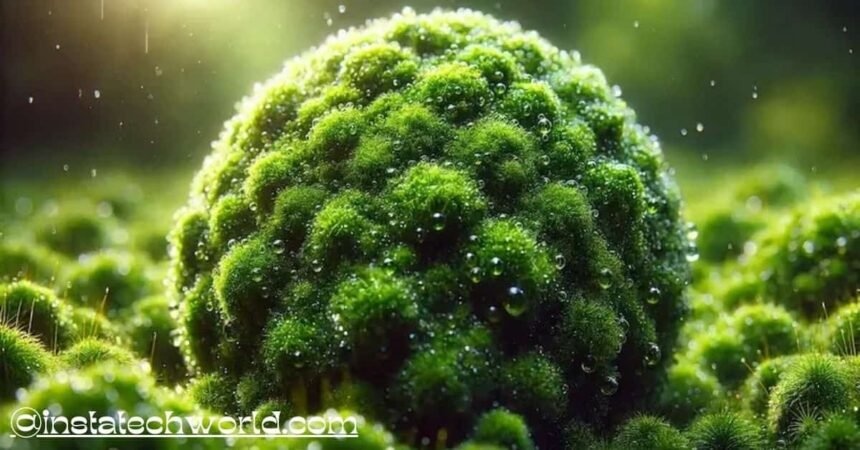Potallaria has been the subject of growing interest across various fields, yet its true nature remains somewhat mysterious. Whether you have heard about it in sustainability discussions, cultural contexts, or even herbal medicine, one thing is clear—Potallaria has the potential to be much more than just a term.
This article delves into the various meanings, uses, and applications of Potallaria, providing clarity and insights to help you understand why it’s generating buzz in so many areas.
The Enigmatic Origins of Potallaria
Potallaria – A Modern Botanical Discovery?
The name Potallaria could be more than a mystical term; it might also be the name of a newly discovered plant species. Scientists and environmentalists are constantly uncovering new flora that could hold key benefits for ecosystems, and Potallaria could be one such discovery. As of now, there’s no official confirmation of its botanical nature, but the speculation around its potential to address environmental concerns is quite compelling.
What Could Potallaria’s Discovery Mean for the Environment?
- Air Quality Improvement: If Potallaria is a plant species, it might have properties that help filter pollutants from the air. Much like other known air-purifying plants such as the peace lily or spider plant, Potallaria could play a role in enhancing air quality, especially in urban areas.
- Soil Enrichment: Certain plants can restore degraded soil, preventing erosion and supporting agricultural efforts. Potallaria could possess such qualities, making it a potential asset for regenerative agriculture.
- Sustainable Agriculture: If Potallaria can grow quickly and in harsh conditions, it could serve as a crop for sustainable farming, improving soil health while minimizing the need for chemical fertilizers and pesticides.
If you’re interested in sustainable gardening or farming, Potallaria might be a plant worth watching closely.
Potallaria – A Language and Cultural Puzzle
While some have speculated that Potallaria might be a plant, others have dug deeper into its potential cultural and linguistic roots. Could Potallaria be an ancient word or concept, tied to a long-lost civilization or language? Theories suggest that Potallaria could represent more than just a material object; it could carry profound symbolic or philosophical significance.
A Word from the Past – Potallaria in Ancient Texts
- Lost Languages: Historical linguists have long sought out ancient words and terms that have disappeared from modern usage. Potallaria might belong to one of these extinct languages, holding knowledge or wisdom lost to time.
- Mythological Significance: In ancient cultures, specific terms like Potallaria could have been used to represent elements of nature or metaphysical ideas. Potallaria could be an emblem of spiritual growth, wisdom, or transformation, signifying the journey toward enlightenment.
The cultural and historical exploration of Potallaria provides rich material for scholars and enthusiasts of ancient languages and mythology.
The Benefits and Applications of Potallaria

Potallaria in Modern Herbal Medicine:
If Potallaria is indeed a plant, its potential uses in herbal medicine could be vast. There are many plants in the world known for their medicinal benefits—plants like ginseng, turmeric, and lavender have been used for centuries for healing purposes. Potallaria could follow suit, offering a range of health benefits.
Possible Medicinal Properties of Potallaria:
- Anti-inflammatory Effects: Many plants have properties that can help reduce inflammation. If Potallaria shares these qualities, it could be used to treat conditions such as arthritis or muscle strain.
- Natural Stress Relief: If Potallaria is an adaptogen, it might have calming properties that help the body resist stress and maintain balance.
- Antioxidant Benefits: Like many herbs, Potallaria could be rich in antioxidants, which protect the body from free radicals and promote overall health.
Herbalists and alternative medicine practitioners might find Potallaria to be an exciting addition to their range of remedies.
The Cultural Significance of Potallaria – An Inspirational Symbol
Aside from its practical applications, Potallaria could hold deep cultural and symbolic value. Throughout history, various cultures have used plants, symbols, and metaphors to represent philosophical ideas and spiritual enlightenment. Potallaria may well be such a symbol.
Potallaria as a Metaphor for Personal Growth
- The Journey of Transformation: Potallaria could symbolize the path of self-discovery, personal growth, and enlightenment. Just as a plant grows from a seed into a full-bodied organism, Potallaria may represent the stages of human evolution and spiritual awakening.
- A Gateway to Wisdom: In certain mythologies, plants or symbols like Potallaria could represent the bridge between mundane life and the realm of deeper knowledge. It might serve as a metaphor for unlocking higher consciousness.
For those exploring philosophical, spiritual, or psychological topics, Potallaria could provide rich symbolic material for discussion and interpretation.
Read Also: The Best Guide to Exploring Goodmooddotcom.com Travel Archives
Potallaria’s Potential in Sustainable Living and Eco-Friendly Practices

In the modern age, the pursuit of sustainable living has become a significant focus for individuals, industries, and governments alike. Potallaria could serve as a symbol or even a real-life example of how nature can be harnessed for sustainability.
Potallaria’s Role in Eco-Friendly Building Materials
- Natural Fibers for Construction: Like hemp and bamboo, Potallaria could provide natural fibers that are both sustainable and durable. These fibers might be used to make eco-friendly building materials, such as biodegradable insulation or sustainable clothing.
- Carbon Footprint Reduction: If Potallaria is a plant that sequesters carbon from the atmosphere, it could play a role in offsetting carbon emissions and contributing to efforts against climate change.
As the world increasingly focuses on minimizing environmental impact, Potallaria could be a key player in achieving these goals.
How You Can Get Involved with Potallaria
If you’re intrigued by the potential of Potallaria, there are a number of ways you could get involved with this mysterious and promising concept.
Grow Your Own Potallaria:
For those interested in sustainable gardening or farming, cultivating Potallaria might be a fascinating project. If it proves to be a plant with beneficial properties, you could even share its benefits with your local community.
Explore Potallaria’s Symbolic Meaning:
For those who enjoy philosophical or spiritual exploration, researching Potallaria’s symbolic or mythological significance could be deeply enriching. Whether it’s for personal growth, meditation, or cultural studies, uncovering the deeper meanings of Potallaria could offer profound insights.
Support Sustainability Efforts:
If Potallaria plays a role in sustainability or eco-friendly practices, supporting or advocating for its use could help push forward the movement for a greener future. This could involve promoting eco-friendly products made from Potallaria or supporting research on its environmental benefits.
Learn More About Potallaria
If you’re as intrigued by Potallaria as we are, there are several ways to further explore its mysteries:
- Linguistic Studies: Dive deeper into ancient dialects and uncover more about Potallaria’s linguistic origins.
- Cultural Research: Look into how Potallaria may have been used in mythology, art, and spiritual practices.
- Environmental Impact: Investigate how Potallaria’s potential environmental benefits could be harnessed for sustainability efforts.
Conclusion – Potallaria as a Multifaceted Concept
Potallaria is a term that holds great promise in many areas—botanical, cultural, medicinal, and environmental. Whether it turns out to be a groundbreaking plant, a symbol of personal transformation, or a linguistic relic from the past, it’s clear that Potallaria has the potential to contribute to a more sustainable and enlightened world.
By continuing to explore its many facets, we can uncover the true significance of Potallaria, its benefits, and its applications in both everyday life and broader global issues.
FAQ’s
1. What is Potallaria, and why is it gaining attention in sustainability discussions?
Potallaria is a term that is attracting attention for its potential environmental, medicinal, and cultural significance. Some believe it could be a newly discovered plant with properties beneficial for ecosystems, such as air purification and soil enrichment. Others speculate it could have symbolic meanings in ancient cultures related to personal growth and transformation.
2. How could Potallaria contribute to eco-friendly practices?
Potallaria might play a role in reducing environmental impact through its potential for carbon sequestration and by providing natural fibers for sustainable building materials. If it proves to be a plant, it could contribute to reducing carbon footprints and promoting eco-friendly construction and agricultural practices.
3. Can Potallaria be used in herbal medicine?
If Potallaria is indeed a plant, it could have a range of medicinal properties. Potential benefits might include anti-inflammatory effects, natural stress relief, and antioxidant properties, making it a valuable addition to herbal medicine for treating various conditions like arthritis or stress-related disorders.
4. What cultural or symbolic meanings could Potallaria hold?
Potallaria might carry deep cultural or philosophical significance, potentially representing personal transformation, spiritual growth, or enlightenment. It could be a metaphor for the journey toward higher consciousness, much like other plants in ancient myths that symbolize wisdom and the transition to greater understanding.
5. How can I get involved in exploring Potallaria’s potential?
You can explore Potallaria’s potential by researching its possible uses in sustainable gardening or farming, understanding its symbolic meanings, or supporting sustainability efforts linked to its environmental benefits. Engaging with its research could contribute to a greener, more sustainable future.








